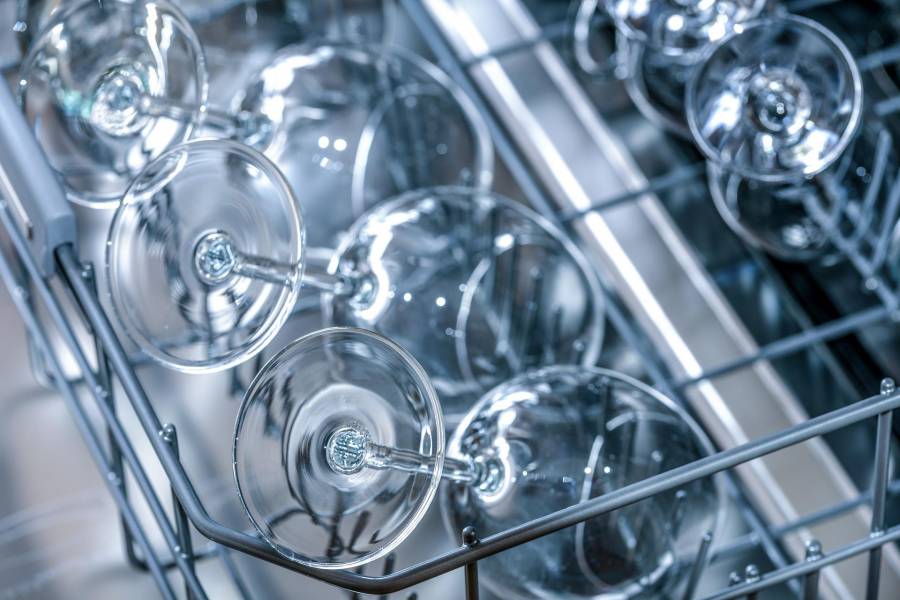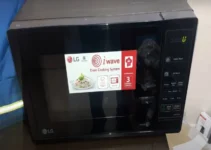Seeing a cloud of smoke coming from your dishwasher can be frightening. Most homeowners who experience this are scared because it is a fire sign.
It could also mean a new expense because you will pay for repairs or buy a new appliance.

However, although most faulty electronics pose a fire hazard, your smoking dishwasher might not cost you much money.
You probably are too terrified to read much, so that we will go straight to the causes of the smoke and the possible solutions.
Reasons Why Your Dishwasher Is Smoking
Some reasons lead to your dishwasher smoking. First, it could be because your appliance is old or faulty.
The heating element in your dishwasher could also cause it to produce a cloud of smoke.
Some homeowners don’t consider dishwasher-safe dishes, which burn and produce smoke during the drying cycle.
Here is how these problems cause dishwasher smoking.
Heating Element
Dishwashers have a heating element that heats the water to high temperatures to clean the dishes quickly.
The heating element also dries the cleaned dishes during the “heated dry” cycle to keep the dishes moisture free.
This part of the dishwasher looks like the cooking element in an electric oven operated by electricity.
The heavy gauge heating element gets too hot during the drying cycle to dry the dishes.
Unfortunately, plastic dishes like spoons, plates, or tins could unknowingly fall on the heated plate.
Also, wooden dishes like cutting boards fall on the hot heating plate during these cycles.
These utensils burn, producing a foul smell and smoke from the dishwasher.
While most homeowners fear repairing their dishwashers, these accidents are not expensive.
Since there are no damages to the dishwasher, you don’t need to hire an expert.
You won’t also buy replacement parts or incur expenses for a new dishwasher.
Signs dishwasher smoking is from the heating element
- Smoke is coming from the dishwasher’s door.
- The smell of burnt plastic or wood
- Burnt plastic spoons, plates, or tins on the heating element
Solutions
Check the inside of the dishwasher to see if there are plastic utensils on the heating coil.
You might not save your son’s favorite plastic cup or plate, but ensure you remove the remains to stop the burn.
The plastic smell is not dangerous. It causes coughing and shortness of breath for a short while.
To keep the rooms comfortable, open the windows for ventilation. Also, turn on ceiling fans to get rid of the smell faster.
Check if your plastic containers and utensils can withstand high heat before starting the washing cycle.
However, they won’t be immune to direct heat from the heating element, so place them on the higher shelves when washing.
Alternatively, you can hand wash the plastic cups and reusable dishes for safety.
Clean the heating plate to remove the stuck melted plastic. Before doing so, ensure the dishwasher is cooled down and shut down the power supply.
Starting a cleaning cycle with a dirty heating coil will produce more smoke.
If the plastic is too hard to clean, place the baking soda on it, leave it overnight, and scrub it in the morning.
New Dishwasher
You would expect new electrical appliances to be perfect without a weird smell.
However, new dishwashers smell like burning plastic during the first and second “heated dry” cycles.
The smell could be due to unremoved packs and stickers on the dishwasher’s wall.
Since the machine has high temperatures, the plastic stickers burn, producing smoke.
It does not raise the alarm since there are no damages to the dishwasher’s parts.
However, if the smell persists in consecutive cycles, something could be wrong with your machine and requires an expert’s attention.
Solution
Remove all the packs and stickers from your dishwasher before using the appliance. Look for stickers on the dishwasher’s walls and the upper and lower sides.
Monitor the dishwasher during the subsequent washes to smell any burning smells.
Check the heating coil and any plastic-coated wires for burns. You should also inspect the plastic-coated racks to confirm if they are the reason for the smoking dishwasher.

If there are burning wires, stop using the machine and contact a professional.
Call a professional if there is a continued burning smell and smoking from the dishwasher, and you cannot trace the cause.
Using your machine in this condition could lead to fire hazards.
Defective Dishwasher
The machine could be defective if you open the smoking dishwasher’s door and there is no burning object on the heating element.
It could be due to poor craftsmanship, old age, or poor design.
When the dishwasher is old, the mechanical parts age making the appliance less effective.
It causes more energy and could lead to a burning smell and smoking in the dishwasher.
Also, smoking in dishwashers and burning smells could be due to incorrect dishwasher wiring.
These are hard to notice, so you must call an expert to inspect your dishwasher and determine the problem.
Many manufacturers issue appliance recalls for new smoking dishwashers.
It is a notification to users of a particular dishwasher brand stating that the device is faulty and could be a fire hazard.
In such cases, the manufacturer can offer to cater for dishwasher repairs or replace the appliances.
Unfortunately, you won’t get these notifications if you buy your dishwasher from a retailer.
Solution
Visit your dishwasher brand’s website to see any updates. You can look for manufacturer recalls or articles about faulty dishwashers and how to troubleshoot the problem.
If your dishwasher is too old, replace it. Buying a new dishwasher is expensive, but it reduces the worry of fire accidents in your house.
Although some homeowners choose repairs, they cost more than replacements in the long run.
Hire a dishwasher expert to determine the reason your dishwasher is smoking.
Opening the appliance could cause fatal electric shocks and damage your dishwasher, costing you expensive repairs.
NOTE
Do not open up your dishwasher to check for mechanical damage. The appliance uses electricity and could cause electric shocks.
Also, your warranty or insurance could be pronounced void if you unscrew your dishwasher without a license.
Non-Dishwasher Safe Items
Although most dishwasher smoking and burning smells are due to fallen plastic on the heating element, non-dishwasher-safe items can be a cause.
These include soft plastic utensils and containers without a dishwasher-safe sticker.
The temperatures inside the dishwasher get too high, and exposing these containers to heat causes them to burn and produce smoke.
The wood can also warp, splint, and crack due to the high water pressure.
Other non-dishwasher-safe items are plastic bottles with stickers. When exposed to heat, the stickers and labels fall on the heating element and burn.
Some plastic spoon and knife handles could also expand and fall on the metal plate.
Solution
When buying utensils, always check if they are dishwasher safe. Exposing flimsy plastics to the high temperatures in the appliance causes dishwasher smoke.
Ensure the plastic is hard and solid enough not to melt in your dishwasher.
If these items do not have labels, you can contact the manufacturer and ask about their safety in the dishwasher.
If you have knives with plastic handles, ensure they are correctly fixed before putting them in the dishwasher, and they don’t expand.
If you notice smoke from the dishwasher, stop the drying cycle immediately and check to see the problem.
You could notice melting plastic or burning wooden utensils. If it happens, remove these utensils from the fridge.
Takeaway
Dishwasher smoking can be caused by burning plastic utensils on the heating element, a faulty machine, or unremoved stickers.
If you suspect your device has mechanical problems, contact a professional. They will inspect it and repair it.



